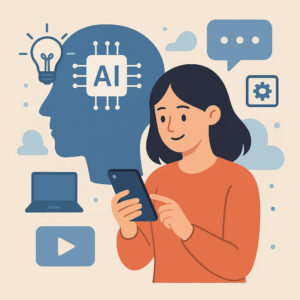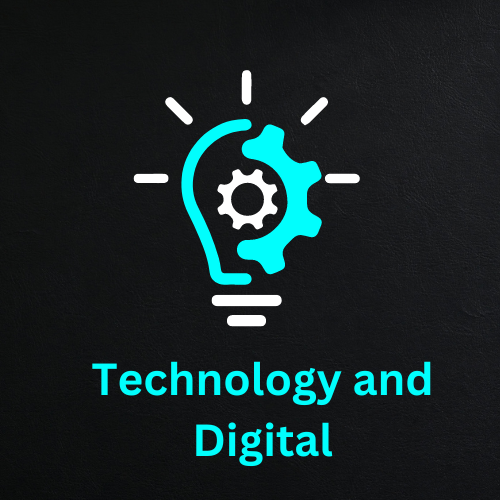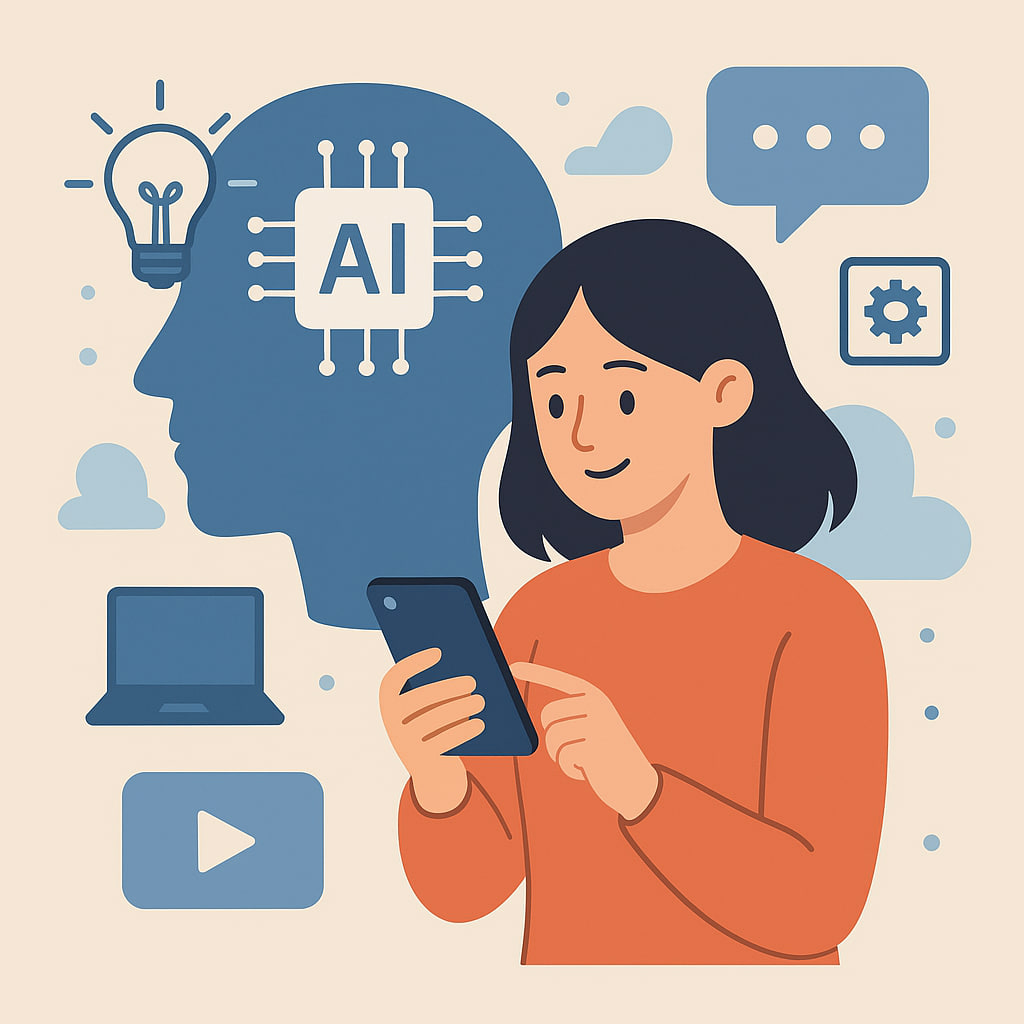Artificial Intelligence in Everyday Life

Artificial intelligence, or AI, might sound like something out of a sci-fi movie, but it’s closer than most people think. From recommending your next favorite song to helping doctors detect diseases earlier, AI is quietly reshaping everyday life. This article explores how artificial intelligence is woven into daily routines, the benefits and challenges it brings, and ways to engage with AI technology in practical, hands-on ways.
How Artificial Intelligence Powers Daily Life
AI works behind the scenes in ways that are both subtle and transformative. Voice assistants like Siri, Alexa, and Google Assistant can schedule appointments, play music, and answer questions almost instantly. Streaming platforms like Netflix and Spotify use AI algorithms to suggest movies or songs based on preferences and listening habits. Even online shopping relies on AI to recommend products and personalize offers.
Consider this scenario: while scrolling through social media, AI curates your feed to show the posts it predicts will interest you most. This personalized approach saves time but also raises questions about how algorithms influence attention and choices. Understanding these dynamics helps tech enthusiasts use AI consciously and creatively.
Practical Tip: Explore AI-powered tools like Google Lens or recommendation engines on e-commerce sites to see firsthand how AI can simplify tasks and enhance experiences.
Artificial Intelligence in Healthcare
One of the most life-changing applications of AI is in healthcare. AI algorithms can analyze medical images faster than humans, spotting anomalies in X-rays, MRIs, or CT scans with remarkable accuracy. Hospitals and clinics are increasingly adopting AI systems to predict patient outcomes, optimize treatment plans, and manage resources efficiently.
For instance, AI-driven apps can monitor chronic conditions, sending alerts when readings fall outside safe ranges. In drug discovery, AI accelerates research by predicting how molecules will interact, potentially bringing new medications to market faster.
Practical Tip: Tech enthusiasts can experiment with AI in healthcare by exploring publicly available datasets, such as those from NIH or Kaggle, and building simple diagnostic or predictive models to understand the technology’s potential.
Smart Homes and AI Automation
Smart homes are a tangible example of AI making life easier. Thermostats that learn your preferred temperatures, lighting systems that adjust automatically, and smart security cameras that recognize familiar faces—all rely on AI. These systems not only improve convenience but also contribute to energy efficiency and safety.
Imagine walking into your house after a long day, and the lights dim, your favorite playlist starts, and the thermostat adjusts to a cozy temperature. AI makes this possible by continuously learning habits and adapting environments to match preferences.
Practical Tip: Start small by adding one or two AI-enabled devices to your home. Experiment with automations to see how AI can simplify daily routines without feeling intrusive.
Artificial Intelligence in Education
AI is also transforming learning. Adaptive learning platforms tailor lessons to individual students’ strengths and weaknesses. AI-powered tutors provide instant feedback, helping learners stay on track and develop skills more effectively.
Virtual classrooms can now use AI to track engagement, identify areas where students struggle, and even predict potential dropouts. This creates a more personalized, efficient, and inclusive educational experience.
Practical Tip: Try AI-driven learning platforms like Duolingo or Khan Academy, which use algorithms to adjust difficulty levels and track progress. Observing how these systems respond can provide insight into AI’s potential in education.
AI in Transportation and Mobility
Self-driving cars, intelligent traffic management systems, and ride-sharing apps all harness AI to make transportation safer and more efficient. AI systems process enormous amounts of data from sensors, cameras, and GPS signals to predict traffic patterns, optimize routes, and even prevent accidents.
Picture an autonomous vehicle navigating a busy city street. AI analyzes the surroundings in real-time, adjusting speed, predicting pedestrian movements, and coordinating with other vehicles. While fully autonomous cars are still developing, AI is already improving road safety and reducing congestion in everyday life.
Practical Tip: Tech enthusiasts can explore AI in mobility by simulating self-driving systems using open-source platforms like CARLA, which allows experimentation in a virtual environment safely.
Ethical and Practical Challenges
While AI brings incredible convenience, it also raises ethical questions. Algorithms can unintentionally reinforce biases, and data privacy remains a critical concern. Additionally, reliance on AI can sometimes reduce human oversight, leading to errors that may go unnoticed until they have significant consequences.
Understanding these challenges is crucial. Tech enthusiasts should focus not only on learning how AI works but also on how to implement it responsibly and transparently.
Practical Tip: Stay informed about AI ethics, bias, and privacy issues. Incorporating these considerations into personal projects fosters responsible innovation and builds trust in AI systems.
The Future of Artificial Intelligence in Everyday Life
The horizon for AI is vast. From improving accessibility for people with disabilities to enabling creative AI tools for artists and writers, its potential seems limitless. As devices become smarter and more connected, AI will continue to integrate seamlessly into daily routines, often in ways that are barely noticeable yet profoundly impactful.
For tech enthusiasts, engaging with AI now—through learning, experimentation, and mindful usage—prepares for a future where AI is not just a tool but a partner in problem-solving and creativity.
Conclusion
Artificial intelligence is no longer just a futuristic concept—it’s a tangible part of everyday life. Its applications span healthcare, education, smart homes, transportation, and entertainment. By understanding how AI works and experimenting with its tools, tech enthusiasts can unlock opportunities to enhance personal life, work, and creative projects.
What’s your experience with AI? Have you tried AI-powered tools in your home, workplace, or studies? Start small, observe, and share your insights. AI is everywhere, and exploring it firsthand is both enlightening and empowering!




